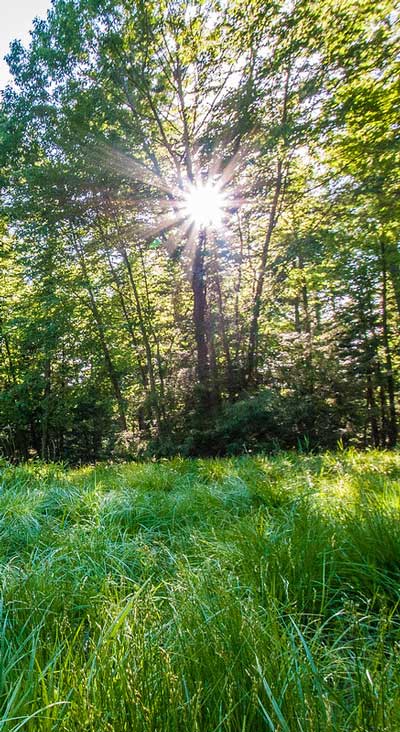It was 1947 and World War II had just ended and an unmarried man with deep roots in Rye probably didn’t even realize that in four short years he’d be married and later starting and raising a family in this classic coastal community. Charles Rand came from a family that had understood the importance of forests to not only nature, but the economic value they provided and he always wanted his own forest to manage.
Charles’ father, Edgar Rand, started the Rand Lumber Company in 1905 with his first mill running off of steam and Charles and his brother, Wilford, followed their father into the family business with Charles’ wife Nancy working in the front office. But separate from the family business, Charles dreamed of having his very own personal woodlot, and then in 1947 the opportunity arose when the then owner of what is now the Independence Farm in Rye approached Charles about selling to him their approximately 100 acres of back forest land in North Hampton and Rye. Charles jumped at the opportunity to own his own woodlot, and his wife Nancy recalls Charles telling her he paid approximately $3,000 for the property.
From day one, Charles Rand spent a lot of time and passion stewarding this land he loved and it gave him great joy to be on the property and kept him connected to the land after leaving the family business. Even the woodland creatures seemed to understand that Charles had a special connection to this place. Nancy Rand recalls for several years Charles had a partridge that was enamored with him and each time Charles walked the land, this partridge would find him and walk right along with him through the forest.

As the years passed rather than a partridge following him through the forest, Charles had a son, Chuck, that would follow him through the forest and learned from his dad about wildlife, the trees in the forest, and the best places to pick berries. The towering stands of white pine intermixed with red maple wetlands became Chuck’s outdoor classroom located a short ways down the street from his Wallis Road boyhood home. As father and son grew older and years passed this bond between father and son and the land only grew stronger.
Later in life Charles brought on board local forester, Charlie Moreno, to assist him in the management of the forest on the property and the two worked closely together to ensure that the timber management was done with wildlife habitat and long term high quality forest resources in mind, rather than short term monetary returns.
In 1997 Charles Rand passed away, leaving the 100 acre forest to his wife Nancy and she continued her husband’s legacy of working with forester Charlie Moreno and her son Chuck on the stewardship of the property. Nancy’s vision for the property remained constant; Chuck would inherit the property to continue his father’s legacy. Although Chuck became a successful businessman with John Hancock Investments, he never lost touch with the land and he and his wife Sandy ended up building their home on a small portion of the property surrounded by the place that held so many childhood memories. The forest continued to provide for Chuck and his family through the firewood he cut from the property.
This love and connection to the land handed down through generation to generation has been the heart and blood of family farm and forest ownership for centuries in New Hampshire, but Rand’s story took a tragic turn when in 2013 Chuck Rand predeceased his mother after succumbing to cancer at the young age of 51.
In speaking with Charlie Moreno, Nancy wanted to keep her son and husband’s memory alive through the forest that they both loved so much. With a goal of keeping a 100 acre forest bisected by two towns managed as a single tract of land and to have management that benefits wildlife and is in the long term interest of the forest resources, Nancy Rand, along with her daughter-in-law Sandy, made an enormous pledge to donate and entrust this wonderful property to the Land Trust for its long term stewardship.
